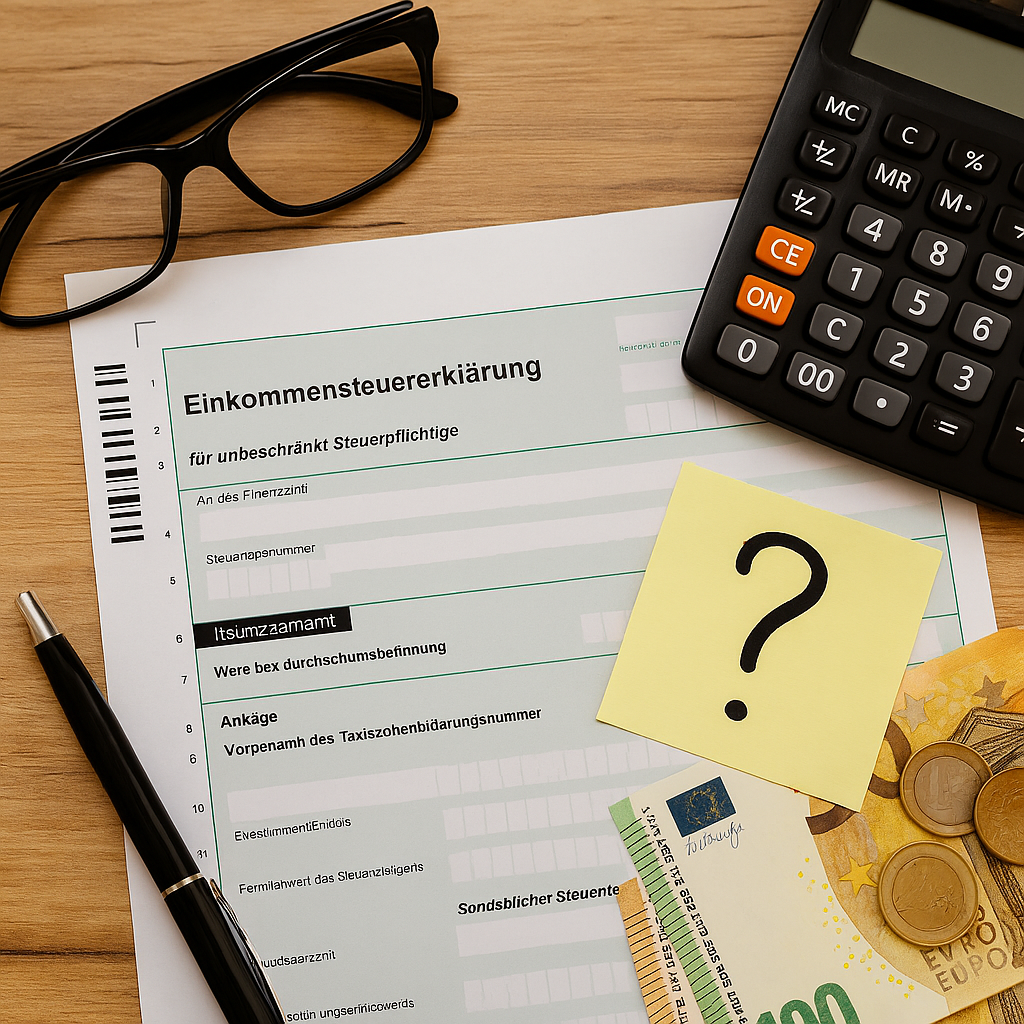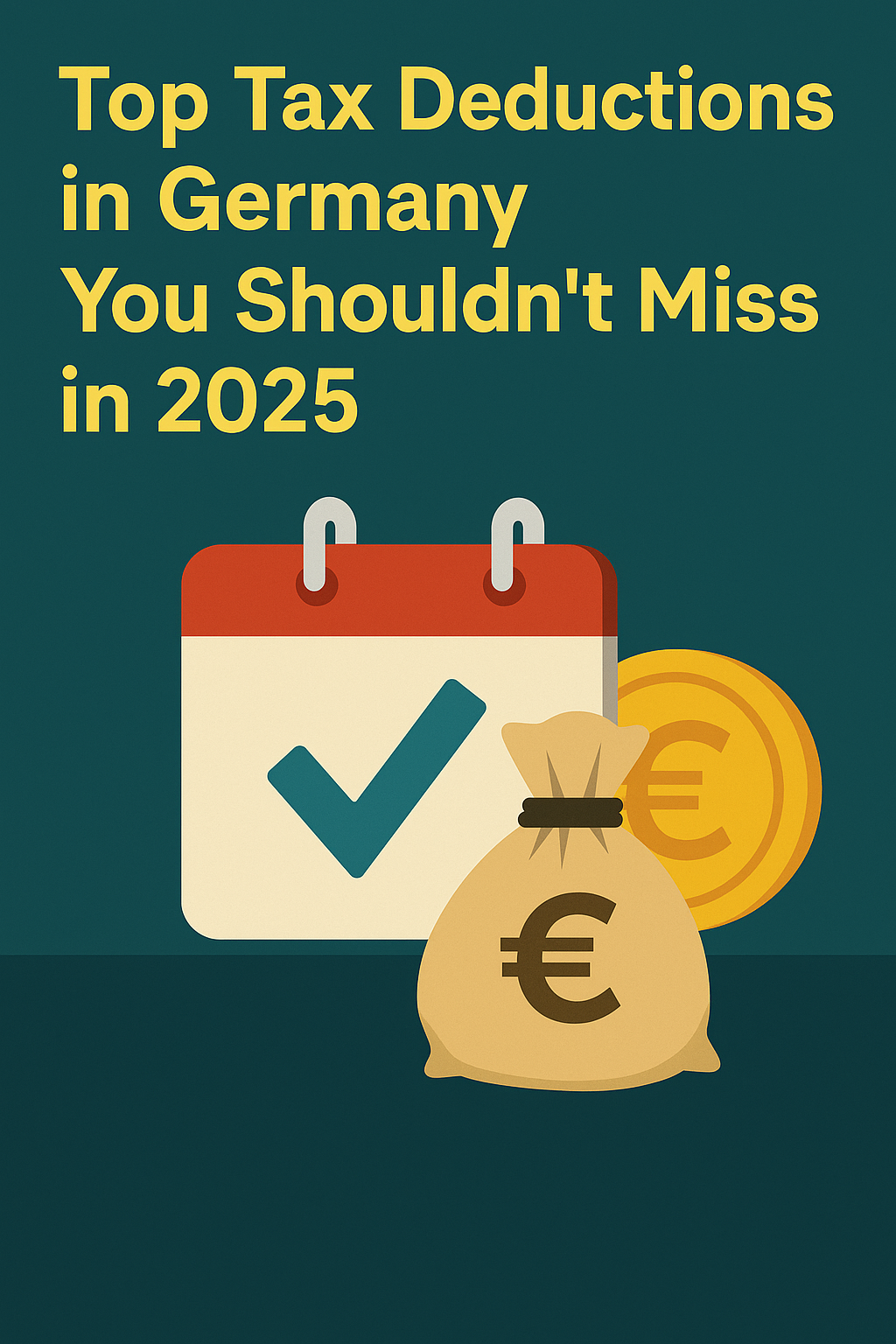Germany Tax Changes 2025: New Allowances, VAT Rules & Digital Tax Updates
Key Tax Changes in Germany for 2025: What You Need to Know
Germany is starting 2025 with a range of tax reforms designed to ease financial pressure and prepare for a more digital, eco-friendly future. These updates affect employees, families, freelancers, startups, and expats alike. Here’s a complete overview of what’s changing and how it might affect you.
A Year of Adjustments: Inflation Relief and Digital Transformation
The 2025 tax package focuses on easing the impact of inflation while modernizing tax processes. Higher tax-free allowances and adjusted income brackets mean many taxpayers will pay less. At the same time, businesses will face new digital rules, including mandatory e-invoicing.
Germany is also pushing sustainability — carbon pricing will increase, encouraging greener choices while raising some energy costs.
Higher Tax-Free Allowance and Adjusted Income Brackets
The basic tax-free allowance (Grundfreibetrag) increases from €11,604 to €12,096 in 2025. Couples filing jointly can double this to €24,192. This means more of your income stays untaxed, helping offset inflation.
Income tax brackets have also been adjusted upward. The 42% tax rate will apply later, giving middle-income earners more room before reaching higher tax levels. The top rate of 45% still applies to incomes above €277,826. The solidarity surcharge remains for high earners, despite debates about its removal.
For employees, this means slightly higher take-home pay. For expats, new tax treaties and deductions (like home-office or commuting expenses) may lead to better refund opportunities.
Small Business and Freelancer Relief: Simplified VAT Rules
Freelancers and small business owners will benefit from a higher threshold under the Kleinunternehmerregelung (small business VAT exemption). In 2025, it applies to those with a previous-year turnover below €25,000 (up from €22,000) and a current-year ceiling of €100,000.
This change means many small entrepreneurs no longer need to charge or declare VAT, cutting down on paperwork. The threshold for monthly VAT filing also rises from €7,500 to €9,000, and record retention requirements drop from 10 years to 8.
Mandatory E-Invoicing: The Digital Push Begins
From January 1, 2025, all businesses in Germany must be able to receive electronic invoices (e-invoices) for B2B transactions in standardized formats such as XRechnung.
Although small companies won’t be required to issue e-invoices until 2028, it’s smart to prepare early. The switch aims to make tax reporting faster, more transparent, and less prone to fraud. While the setup may require some software updates, it will save time and cost in the long term.
Corporate Tax Outlook: Stability Now, Lower Rates Ahead
Corporate income tax remains at 15% in 2025, with an average total of around 29.9% including trade tax. However, the government plans to gradually reduce it to 10% by 2032 to boost competitiveness.
There are also new incentives for investment and innovation:
Accelerated depreciation for movable assets (up to 30% for purchases after June 2025).
Electric vehicle benefits, allowing 75% write-off in the first year.
Increased R&D tax credit, up to €12 million from 2026.
Renewable energy incentives, including tax breaks for solar and wind projects.
Environmental and Social Adjustments
The carbon price will rise to €50 per ton in 2025, affecting fuel and heating but funding new climate initiatives. Property tax reform continues, applying updated valuation models that may shift costs between urban and rural homeowners.
The minimum wage increases to €12.82 per hour, while social security rates remain stable (pension 18.6%, health 14.6%). From 2026, new DAC8 rules will require more transparency in crypto asset reporting.
Who Benefits the Most?
Employees: Higher take-home pay from increased allowances.
Families: Expanded deductions ease daily expenses.
Freelancers & Small Businesses: Simplified VAT rules reduce paperwork.
Expats: Better refund potential under updated tax agreements.
Corporations: Future tax reductions and innovation incentives.
How to Prepare for the 2025 Tax Year
To make the most of the updates:
File early via ELSTER or through a tax advisor (deadline July 31, or October 31 with professional help).
Keep track of deductions such as home office, commuting, and professional training.
Update your accounting software for e-invoicing and digital reporting.
Check your Finanzamt profile to ensure you’re claiming all possible allowances.
Use reliable tools like Taxtip24’s refund calculator to estimate your potential savings.
The Bottom Line
Germany’s 2025 tax reforms bring moderate financial relief while accelerating the shift toward a digital and sustainable economy. Higher allowances and easier VAT rules will help individuals and small businesses, while e-invoicing and green taxes pave the way for a more transparent, future-ready system.
Staying informed and adapting early will help you benefit the most. For updates, expert advice, and refund tools, visit Taxtip24.com.




